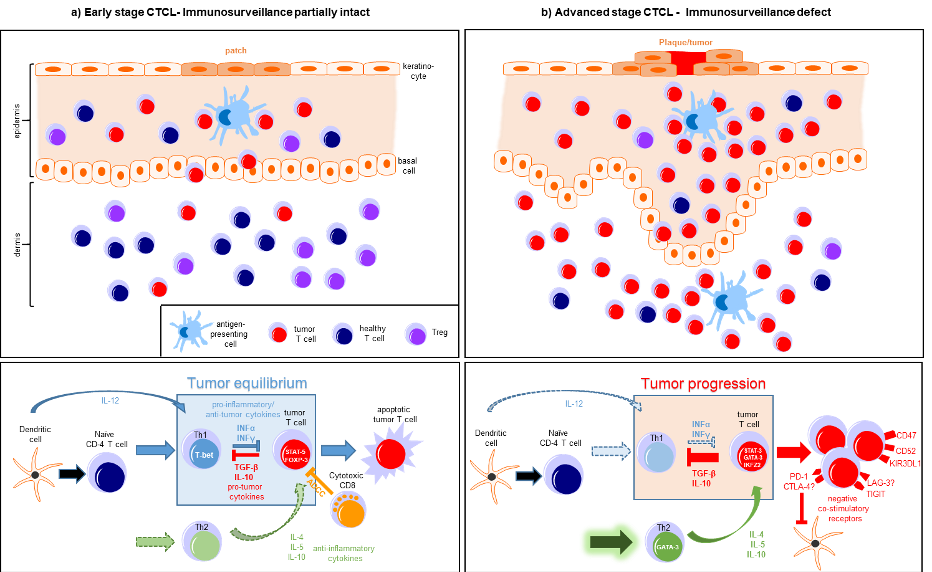Consultations spécialisées
Psoriasis
Dermatologie pédiatrique
Allergologie/maladies du travail
Maladies auto-immunes
Maladies des veines/plaies chroniques
Maladies du cheveu, des cils et du cuir chevelu
Maladies génétiques
Tumeurs cutanées
Infections sexuellement transmissibles
Mycoses
Consultation esthétique
Prévention solaire
Guenova-LAB

Prof. Emmanuella Guenova
Professeure associéeMédecin cheffe
+41 21 314 9889
Team
| Yun-Tsan CHANG | PhD, project leader |
| Pauline BERNARD | MD, cutaneous lymphoma resident |
| Pacôme PROMPSY | Bio-informaticien |
| Yi-Chien TSAI | PhD student |
| Christoph ISELIN | MD-PhD student |
| Florine ANDRÉ | MD student |
| Amina ALIC | MD master thesis student |
Major Scientific Contributions
Our group performs research at the crossroads of immunology and tumor biology, with a focus on primary cutaneous cell lymphomas and inflammatory skin diseases. We aim to understand the innate and adaptive immune mechanisms and their impact on development of skin T cell responses against non-self/cancer, immune suppression and superinfection.




